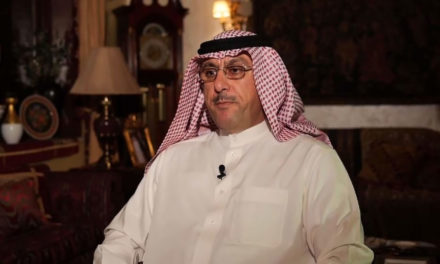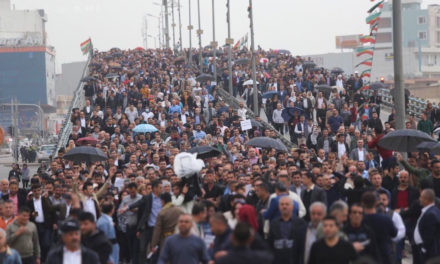This is the third article in a four-part series on the upcoming Iraqi election by Ambassador Lukman Faily
With recent senior changes in United States President Donald Trump’s administration and his appointments of new hawkish leaders, there are fears that U.S. relations with Baghdad may face serious challenges. More so with other changes that may take place by the removal of some senior bureaucrats from the Washington establishment. For example, the State Department may lose more influence than the Pentagon and the National Security Council, both of which are more concerned with Iran’s central vision of Iraq and the region. The issue of the Popular Mobilization Forces is expected to become a controversial issue in the near future, and may adversely affect bilateral relationship between the U.S. and Iraq, including the financial support . This could affect Washington’s urge for the necessary IMF and the World Bank cooperation with Iraq in the face of its economic development plight.
The new Trump administration appointments are likely to increase tensions in the region, with besieged Israeli and Iranian states. Iraq could once again become a turf for regional competition, which could see the Saudi-Iraqi rapprochement suffer as a result. The question then becomes whether Iraq is prepared with the level of maturity of its institutions, collective leadership and society to be an international balancing point that is necessary for the stability of the region. The demands of such a role are not wishful thinking, but need institutional, elitist and societal foundation. Each Iraqi party plays an integral role in enhancing the image of Iraq’s willingness to be a calming factor for a troubled and tense region.
With regard to the new changes in Washington and its impact on its policies in the Middle East, there will be an increase in animosity towards Iran as a strong supporter of Israel’s right wing, which it considers an untenable enemy. The integration of these two elements is likely to lead to the formulation of new policy recommendations for the Trump administration in our region, including in Iraq. Do not forget that U.S. efforts to transform the Middle East through active promotion of democracy does not seem to be part of the Trump administration’s agenda. Instead, the approach under the banner of “America First”, is clearly to articulate the pursuit of self-interest and individual U.S. national security goals and support for parties that are in line with Washington’s policy objectives. The historical proverb of understanding the current situation is the Cold War hawks’ view of the United States to international relations, where they governed the allies primarily in terms of global competition with the former Soviet Union.
We may see Washington’s position requiring current and future Iraqi governments to take an unequivocal stand against Iran and its allies. We have not forgotten that Prime Minister Haider Al-Abadi has so far managed to follow a relatively balanced policy that has made the United States and Iran relatively happy. If Washington forces Baghdad to choose, it is likely to disrupt this delicate balance. Here, the parties (Iraqi and regional stakeholders) advocating anti-Iran policies are likely to be heard more by the White House. It is also likely to lead to more intervention by both Washington and Tehran in the upcoming parliamentary election and the forming of the new government proceeding the election result. But the final outcome could result in more troubled relations between the Trump administration and the new Iraqi government; especially as a Da’ish threat appears to have diminished and is no longer a top priority for the U.S.
It is important to recognize that the role of the next prime minister will be very important in determining the mechanisms of Washington’s handling of Baghdad. On the American side, one of the most important indicators will be the extent of giving the next prime minister priority to strengthen the relationship with Washington. As for the Iraqi side, there is a real need to strengthen the Iraqi team on the American portfolio. The Washington variables are many and require the Iraqi government (from Baghdad, not just from our Embassy in Washington D.C.) to follow closely and communicate constantly in order not to misread international events, more so since we are at the heart of the storm, where Iraq likes it or not.

Lukman Faily
Lukman Faily served as Iraqi ambassador to Japan and the United States.










